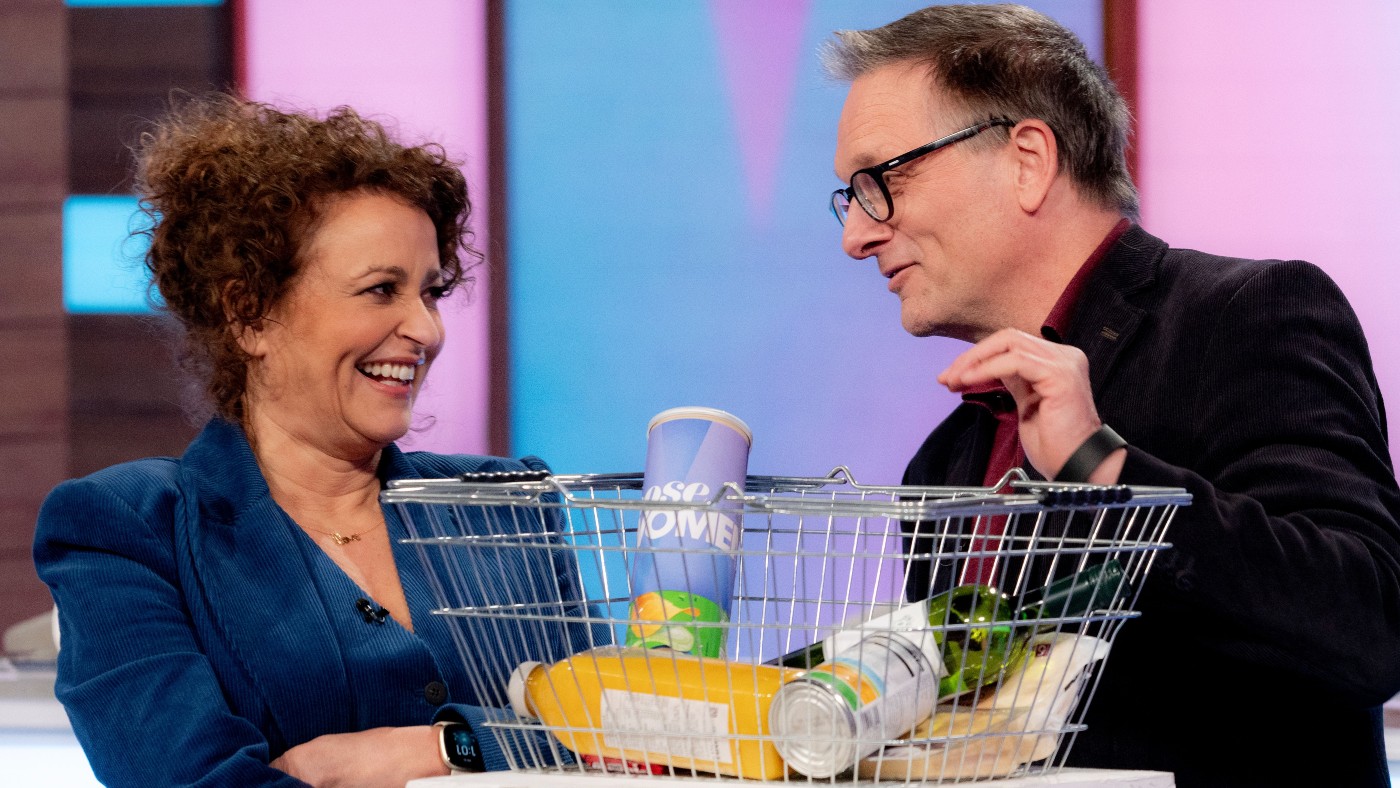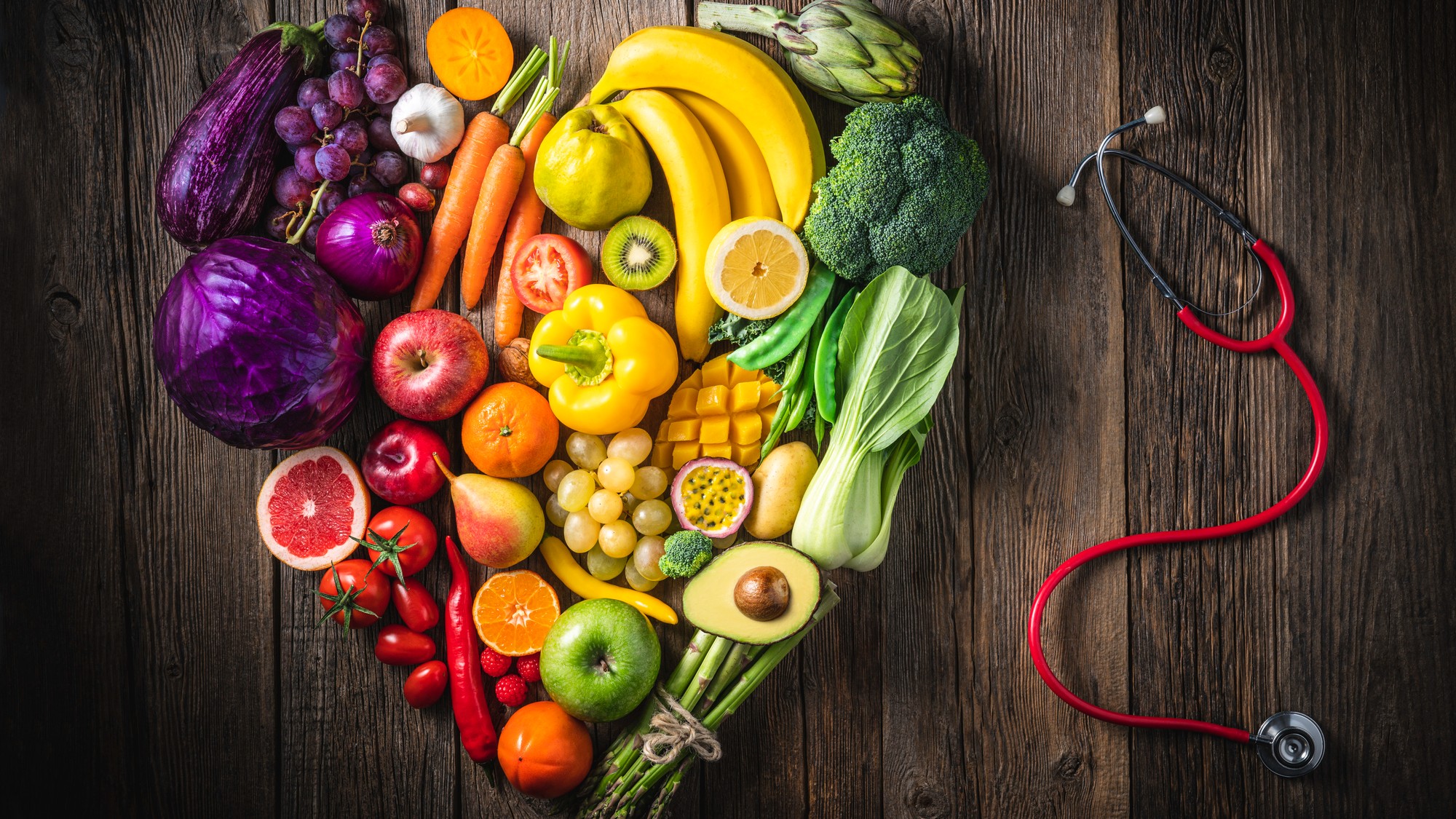Intermittent fasting: does diet pioneered by Michael Mosley work?
Doctor's TV documentary and international best-selling book 'set the stage for the next great fad diet'

A free daily email with the biggest news stories of the day – and the best features from TheWeek.com
You are now subscribed
Your newsletter sign-up was successful
The spotlight has returned to intermittent fasting after its pioneer, the TV presenter Michael Mosley, died while on holiday in Greece.
The approach of fasting to cut calories "got the nation talking" and "spawned fasting recipes, calorie-restricted menus and even a book", said the BBC. But what is intermittent fasting and is it safe?
What is intermittent fasting?
Intermittent fasting was brought to a wider audience in 2012, when Mosley introduced it in a BBC documentary, "Eat, Fast, and Live Longer". After five weeks, he'd lost more than 14 pounds, and his cholesterol and blood-sugar levels had significantly improved. The documentary, and the international best-selling book that followed, "set the stage for the next great fad diet", said The Atlantic.
The Week
Escape your echo chamber. Get the facts behind the news, plus analysis from multiple perspectives.

Sign up for The Week's Free Newsletters
From our morning news briefing to a weekly Good News Newsletter, get the best of The Week delivered directly to your inbox.
From our morning news briefing to a weekly Good News Newsletter, get the best of The Week delivered directly to your inbox.
Intermittent fasting involves alternating periods of eating with periods of fasting. In the 5:2 pattern, the week is divided into five normal eating days and two days of fasting. You consume only 500–600 calories on two non-consecutive days of the week but eat as usual the other five days.
There are other versions, including the 16:8 fast, which involves fasting for 16 hours and then having an eight-hour window for eating, and the OMAD or One Meal A Day, which is a 23:1 pattern, where only one meal is consumed each day.
Unlike traditional diets that are "all about what to eat", this focuses on "when to eat", said Vogue. In fact, because it doesn't specify which foods you should eat, but only when you should eat them, some say it's not really a diet, but an eating pattern.
It has "clear upsides" compared with other "fad diets", said The Atlantic, because "rather than a byzantine set of instructions" it comes with just one rule: don't eat at this time. Also, some diets can be expensive, but intermittent fasting "costs nothing" and requires "no special foods or supplements".
A free daily email with the biggest news stories of the day – and the best features from TheWeek.com
As well as weight loss, it can reduce inflammation, reduce insulin resistance and boost brain health by aiding the growth of new nerve cells. It can also "trigger" autophagy, a process that helps the body get rid of damaged cells and replace them with new ones, added Vogue.
What criticisms are there?
Fasting is "certainly not for everyone", said Healthline, so if you're "underweight or have a history of eating disorders", you should not fast without speaking with your doctor first.
There are also "anecdotal reports" of females whose menstrual periods temporarily stopped when they started doing intermittent fasting, probably because fasting can "disrupt female hormones", said the website.
The technique can pose "significant challenges", said Vogue, because "some people report feeling more tired, fatigued, constantly hungry and irritable".
Aisling Pigott, a dietician and spokesperson for the British Dietetic Association, told The Guardian she worries about people trying restrictive eating in households with young children, particularly "what kind of message that will be sending to them, in a world where we've seen eating disorders explode over the last three to four years".
Who was Michael Mosley?
Dr Mosley studied medicine in London and qualified as a doctor. For the last two decades he found fame as a presenter, documentary maker, journalist and author.
He became a household name as he offered tips on simple ways to improve our health and wellbeing, "backed up by science", said the BBC – everything from when to exercise and what to eat to how to get more sleep.
He was known for a number of television programmes including "Trust Me, I'm a Doctor", and BBC Radio 4's "Just One Thing" programme and podcast. He also wrote a column for the Daily Mail.
You "can't deny the hugely positive impact he's had on Britain's health", nutritionist Sam Rice told The Telegraph, because "he did more than anyone to tackle our current public health emergency – and he did it in a compassionate way".
Chas Newkey-Burden has been part of The Week Digital team for more than a decade and a journalist for 25 years, starting out on the irreverent football weekly 90 Minutes, before moving to lifestyle magazines Loaded and Attitude. He was a columnist for The Big Issue and landed a world exclusive with David Beckham that became the weekly magazine’s bestselling issue. He now writes regularly for The Guardian, The Telegraph, The Independent, Metro, FourFourTwo and the i new site. He is also the author of a number of non-fiction books.
-
 Political cartoons for February 15
Political cartoons for February 15Cartoons Sunday's political cartoons include political ventriloquism, Europe in the middle, and more
-
 The broken water companies failing England and Wales
The broken water companies failing England and WalesExplainer With rising bills, deteriorating river health and a lack of investment, regulators face an uphill battle to stabilise the industry
-
 A thrilling foodie city in northern Japan
A thrilling foodie city in northern JapanThe Week Recommends The food scene here is ‘unspoilt’ and ‘fun’
-
 ‘Longevity fixation syndrome’: the allure of eternal youth
‘Longevity fixation syndrome’: the allure of eternal youthIn The Spotlight Obsession with beating biological clock identified as damaging new addiction
-
 Europe’s apples are peppered with toxic pesticides
Europe’s apples are peppered with toxic pesticidesUnder the Radar Campaign groups say existing EU regulations don’t account for risk of ‘cocktail effect’
-
 Mixed nuts: RFK Jr.’s new nutrition guidelines receive uneven reviews
Mixed nuts: RFK Jr.’s new nutrition guidelines receive uneven reviewsTalking Points The guidelines emphasize red meat and full-fat dairy
-
 The truth about vitamin supplements
The truth about vitamin supplementsThe Explainer UK industry worth £559 million but scientific evidence of health benefits is ‘complicated’
-
 Choline: the ‘under-appreciated’ nutrient
Choline: the ‘under-appreciated’ nutrientThe Explainer Studies link choline levels to accelerated ageing, anxiety, memory function and more
-
 Ultra-processed America
Ultra-processed AmericaFeature Highly processed foods make up most of our diet. Is that so bad?
-
 The plant-based portfolio diet invests in your heart’s health
The plant-based portfolio diet invests in your heart’s healthThe Explainer Its guidelines are flexible and vegan-friendly
-
 Is this the end of ultraprocessed foods?
Is this the end of ultraprocessed foods?Today's Big Question California law and the MAHA movement are on the same track